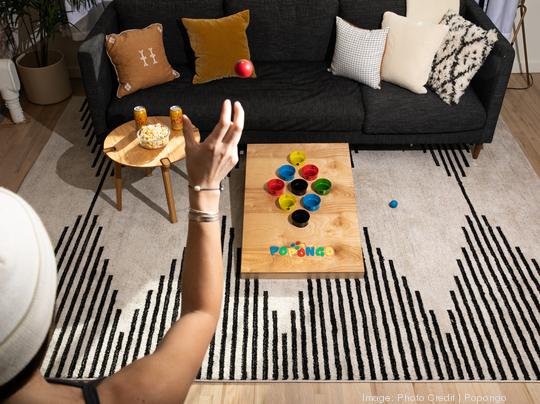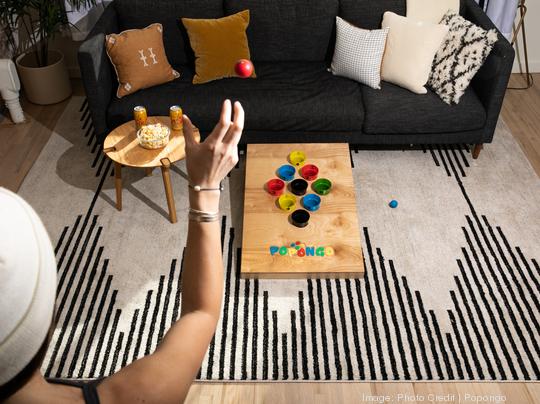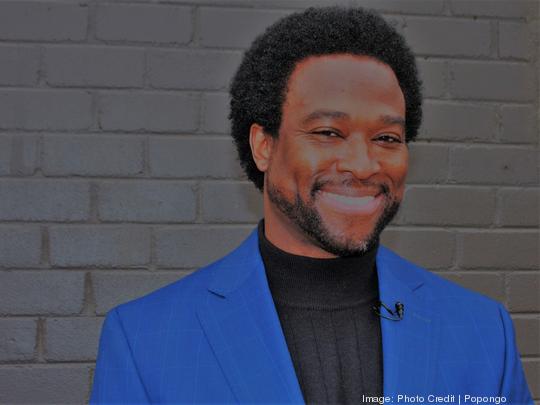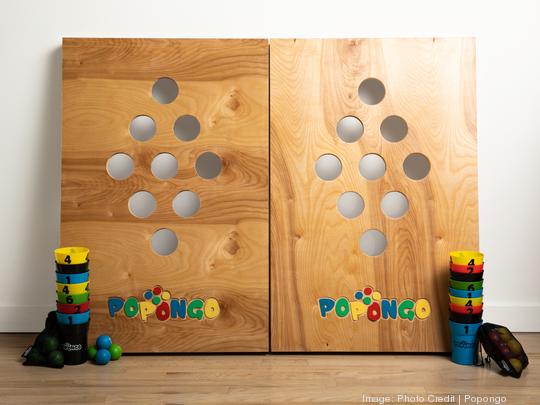In search for new outdoor games, Denver resident creates Popongo



Prior to the pandemic, Errol Anderson and his friends were active and often played pickup basketball together.
When Covid-19 restrictions forced them to abandon those games, the group was searching for something to fill that social gap.
They settled on a backyard game night that allowed for a socially distanced connection they had been lacking. In anticipation of the party, Anderson began searching for games to bring. He was met by the usual backyard activities of cornhole and ladder ball.
He purchased a cornhole set and brought it over, disappointed by the lack of variety. When the group grew easily bored, Anderson’s mind began racing.

While his background was in mortgage banking, Anderson thought there must be a better outdoor game to bring fun to a large group. When he got home that night, he was still fixated on the idea and began jotting down plans in a notebook.
Over the next month and a half he was consumed, and eventually, he dialed in his ideas to one prototype of a game he’d name Popongo.
The idea combined a couple of games, think skee-ball crossed with cornhole. In Popongo, players take turns tossing foam balls into cups, on a platform, which have different point values. There are nine cups with values from six to one point and 10 balls split between two teams.
After nearly eight months of planning, prototyping and building, Anderson sold his first Popongo set in December. He says the game is unlike anything else on the market.
“Popongo is exciting, it’s high energy and it’s engaging,” he said.
Despite not having experience in building a company, Anderson said his mother instilled a work ethic in him while growing up in Jamaica. He’d always had his eye on coming to America and has felt like he’s found a home in Denver.
That’s why, when he was looking to produce Popongo, he wanted to stay local.
“Even though it would’ve been so much less expensive to get them built in China, I don’t get to participate in the quality of the production of the boards,” he said. “And I felt it would’ve been awesome to have them made in Colorado. There was a sense of pride I put on that.”
The company builds and distributes the $159 set from Denver and plans to continue that in the future.

With Popongo being his first foray into building a business, Anderson said he’s learned many lessons. The first of which is the financial challenges of getting a brand off of the ground.
“It’s expensive,” he said with a laugh. “I don’t think anybody could just tell me how it would go, I had to go through it myself.”
Anderson said the company is continuing to innovate on its product and will soon launch a digital application as a companion to Popongo. The virtually augmented app will simulate a Popongo game for the user, making them feel as if they’re playing on a board in front of their phone.
And, while Anderson has jumped headfirst into the business, he sometimes can’t believe he’s actually founded a game company. Reflecting on that experience, he’s thankful for the positive impact he’s been able to make.
“I get a certain level of pride in feeling like I’m contributing to people’s happy times and memories,” he said. “Not a lot of people can say that the things they’ve done in life have affected other people like that.”


